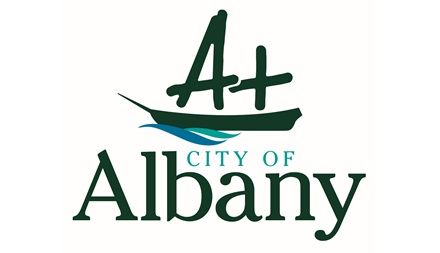Citizen Science puts some Numbers on the Critically Endangered Western Ringtail Possum in Albany
/Kara Pot and ‘Stretch’ Little on the hunt for Ringtail Possums on Mount Melville during the recent surveys
While most Albany residents would only see a Ringtail Possum when it is road-kill, over 40 volunteers have been out at night observing and counting these critically endangered marsupials on Mounts Clarence, Adelaide and Melville. The monitoring project aims to provide important information on population numbers, movements and habitat preferences to aid management of the species on the South Coast. Despite Albany being a stronghold for the species, little is known about them.
The 40 volunteers have helped with the program including community members ranging in age from 12 to 90 years old, university students, community groups and the Aboriginal Green Army.
The project involved monitoring by spotlighting for four nights at three sites on Mt Clarence/Adelaide and three sites on Mt Melville over four seasons in 2016/2017, with the final session just completed.
The number of Ringtail Possums seen while spotlighting was quite variable over the four nights and between sites, but it was not uncommon to see 8 to 12 over a one and a half hour period. There has been no clear variation in numbers between autumn and summer and mothers with young have been spotted throughout the year.
The joint project involves the Oyster Harbour Catchment Group, City of Albany, Department of Parks and Wildlife and the Centre of Excellence in Natural Resource Management at the University of Western Australia and is funded by the State government as a Natural Resource Management Project. The citizen scientists have been getting data on numbers and behaviour of these possums which is vital in aiding the Albany population's management and conservation.
A Ringtail Possum captured on a motion sensor camera
The project has also supported an honours project at UWA Albany. Honours student Bronte Van Helden has radio-collared Ringtail Possums on the Mounts and found they have home ranges of just under one hectare and mostly used Marri and Jarrah at night. Daytime refuges included dreys (nests made of leaves), Marri hollows and thick ground cover. Bronte has commenced a PhD which will continue her studies of the Western Ringtail Possum.
A community survey using motion-sensing cameras is also planned in residential gardens around the Mounts to monitor possums in the urban areas adjacent to the remnant bush. How often and when the possums visit, and when the young are present in the population will be measured.
For more information about the project, please contact Claire Bartron, Landcare Officer, Oyster Harbour Catchment Group Inc. or Sandra Gilfillan (Project Fauna Consultant)
































